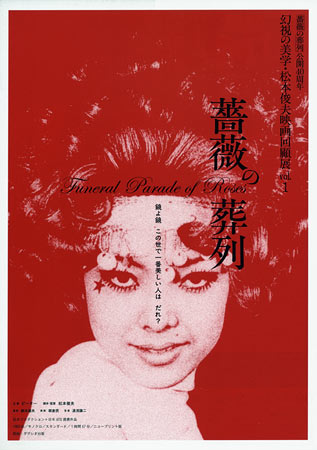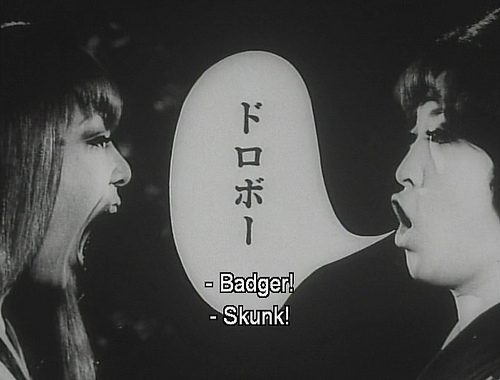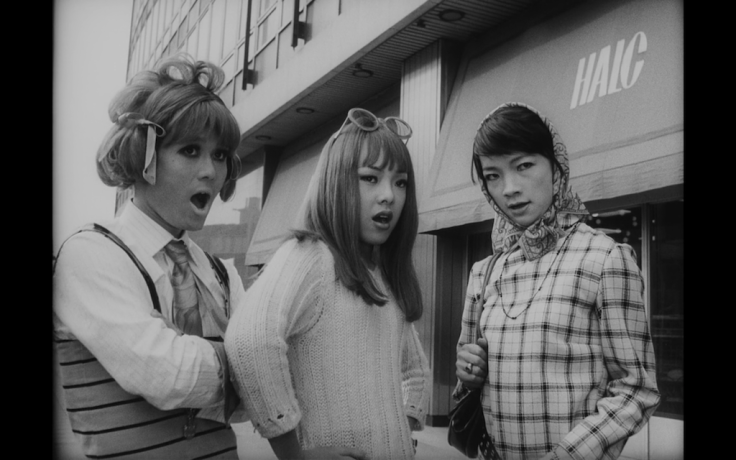
SPOILER FREE
I often watch films that lay within the same personal narratives and themes that I enjoy in life, obviously not counting Sci-Fi and Fantasy, I feel that the films that resonate with me the most are the ones where I can see a character and much rather see someone I know, or to an extent see myself. I don’t know maybe the reliability is translated easier, or if that’s just how my brain works; but to say I enjoy “Westerns or War films” would be so off the mark.
However, now and again I dip my hairy toes into a pool of the unknown, you know- just to see how the water feels, and yesterday after I watched Funeral Parade of Roses …the water felt just right~

I would be lying if the anti-hetero normative theme of this film was a gratification hook for me, because as someone who is a self confessed Weeaboo as well as being loud and audaciously LGBT identified- the thought of watching a 1960’s Japanese art-house didn’t seem so weird. The Holy Mountain,Begotten and Pink Flamingos are some of my favourites of this genre so I didn’t think the so called “Pre-cursor” to ” A clockwork orange” would belittle me of any preexisting knowledge I had of the genre.
First and foremost the integration of real life queens, gays, lesbians, experimenters whatever minority you recognise in the film is extremely refreshing; the conservative nature in early post-war era Japan often trivialised the LGBT community thanks to Western influence. Before then however, Homosexual relations and binary breaking of gender norms were common in archaic forms of entertainment and culture ( Kabuki to name one) Anyway I digress, what makes the use of real LGBT identified people refreshing is how real this film comes across, don’t get me wrong the film weaves in some documentary and interview footage with the cast to show it’s only a film and not real, however for the most part, what you see on the screen – you see on the streets.

As far as narratives go, the foundation basis of the film relies heavily on same-sex paternal relationships that are found in Ancient Greek plays (you know Oedipus and his mum n stuff), not that it in any way shares any similarity, the film is brilliantly delivered as a series of vignettes that sew a macro-narrative together. Eventually leading into a climax that one would THEN draw comparisons to the story ect. I won’t dwell on the story line, as truthfully I think the main concept of this film is to draw on the human identity and how we progress through our surroundings as part of a marginalised community, while at the same time finding solace in places where you can openly not give a shit..
The characterisation of “Eddie” is almost as homogeneous as the actor/ess who plays her (Pita). As well as other Kabukicho locales that reinforce the authenticity of the gay sub-cultures in 60’s Tokyo.
Although a far from polished review, there is so much more I could say in relation to the symbolic imagery and social context this film was placed in, but, as per I’d digress. I’mma leave it there x
Genre; Art house, Romance, Drama.
Characterisation; 10/10
Production; 8/10
Cinematography; 10/10 (possibly some of the best I’ve watched)
Narrative; 7/10
Rating: 9.5/10
Leave a comment